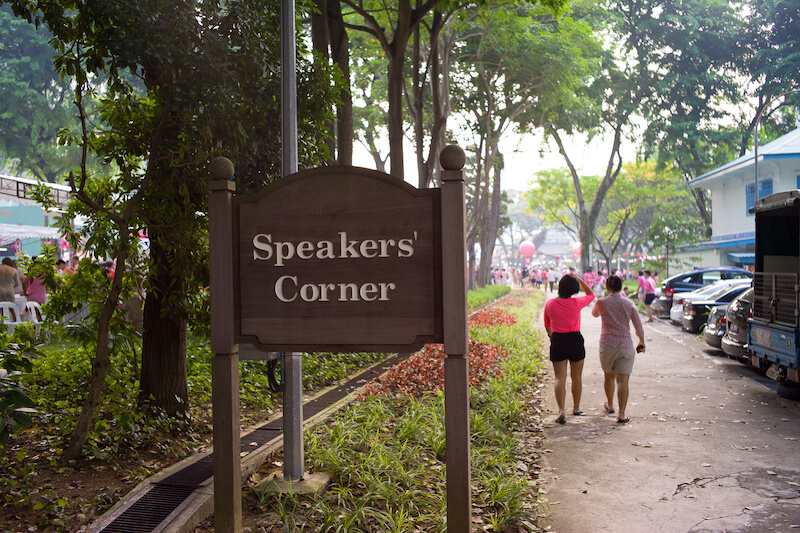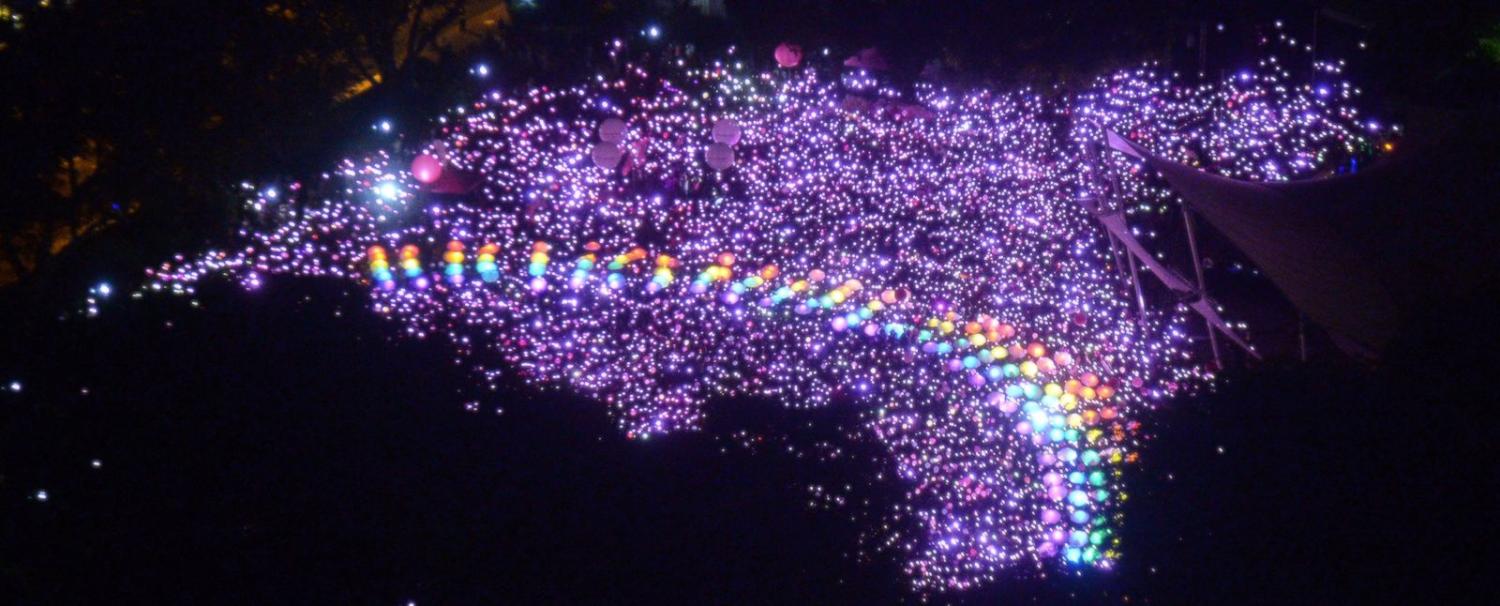LGBT activists first launched a campaign to repeal an anti-gay law in Singapore in 2007. That campaign ultimately failed, but over a decade later, the LGBT community is giving it another shot.
Section 377A of the Singapore Penal Code criminalises sex between men, regardless of whether it’s consensual.
The “Repeal 377A” campaign launched in 2007 might not have been successful, but it did push LGBT issues into the public consciousness. And the context in 2018 has evolved. Social media has given civil society groups a platform to get their message out. Pink Dot, Singapore’s annual LGBT pride rally, is in its 10th year. As part of its iconic “light-up” – where rally attendees shine pink lights into the sky – 2018 Pink Dot volunteers in July created an impossible-to-miss message in response to a government dragging its feet on change: “WE ARE READY”.

While the 2007 campaign garnered 8,120 signatures in an open letter to the prime minister and 2,341 signatures in a parliamentary petition, this year’s “Ready 4 Repeal” petition counts, at time of writing, over 43,700 signatures. Prominent signatories include academics, civil society advocates, businesspeople and former Nominated Members of Parliament.
Developments in other former British colonies have also given the Singaporean LGBT community a boost. Earlier this month, the Indian Supreme Court delivered a historic verdict decriminalising consensual gay sex and effectively defanging Section 377 of the Indian Penal Code.
Section 377, which outlaws “carnal intercourse against the order of nature with any man, woman or animal”, was introduced to India by the British in the 1800s. The Indian Penal Code became a model for the legal systems of British colonies, including Singapore.
Although Singapore ceased to be a colony in 1963, both Sections 377 and 377A remained until 2007, when Parliament repealed Section 377, replacing it with a new law criminalising necrophilia. Section 377A, though, was left untouched, which means that acts that have been decriminalised for heterosexual couples, such as anal or oral sex, continue to be criminalised specifically for gay men.
It isn’t just the LGBT movement that’s grown in Singapore; the pushback has, too.
A review of the Singapore Penal Code is coming up later this year. Although it would be a perfect opportunity to reconsider this controversial legislation, Section 377A has been explicitly excluded from the review. The People’s Action Party (PAP) government has been reluctant to take a stand on this issue.
It isn’t just the LGBT movement that’s grown in Singapore; the pushback has, too.
Conservative Singaporeans, particularly evangelical Christians, have become more active in mobilising supporters to lobby against any movement towards LGBT equality.
Following the Indian court decision, a petition in support of retaining Section 377A in Singapore appeared online. WhatsApp messages, including an animated video claiming that repealing the law would lead to the arrests of religious leaders who refuse to officiate same-sex weddings and even an end to male and female toilets, were shared widely. At the time of writing the petition has over 104,000 signatures.
“In light of the Biblical teaching on the subject, the Council believes that the homosexual lifestyle is not only harmful for individuals, but also for families and society as a whole. The repeal of section 377A would result in the normalisation and promotion of this lifestyle,” said the National Council of Churches in Singapore in a press statement urging the retention of the law.
Wary of offending a conservative voter base – a recent survey found that 55% of Singaporeans support Section 377A – Prime Minister Lee Hsien Loong’s administration positions itself as a neutral party in this controversy. It says it’s struck a balance: while Section 377A still remains on the books, it’s not actively enforced.
“Singapore, if you look at it on this issue, it is a deeply split society. The majority are opposed to any change to section 377A, they are opposed to removing. A minority, but I have to say a growing minority, want it to be repealed. Government is in the middle,” said Minister for Law and Home Affairs K Shanmugam after the Indian Supreme Court decision.
But it isn’t a tenable position. In 2014, former Attorney General Walter Woon argued that the current compromise with Section 377A sets “a very dangerous precedent here where the political authorities are saying to the Public Prosecutor – who is supposed to be independent – there are some laws that you don't enforce”.
The government has actually been far from neutral. Media regulations specify that the mainstream media “should not in any way promote, justify or glamorise such [LGBT] lifestyles”. Sexuality education classes in public schools have told students that homosexuality is illegal; LGBT Singaporeans say that this increases stigma and bullying in school. LGBT organisations are refused official registration. Education minister Ong Ye Kung recently claimed that there is “no discrimination” against the LGBT community despite a wealth of evidence to the contrary.
Complaints from conservatives about LGBT content have also been indulged: in 2016, a brief same-sex kiss was excised from a stage production of Les Miserables after complaints prompted the Media Development Authority to tell the organisers that it violated the show’s rating. Last week, the communications minister revealed in Parliament that eight children’s books at the national library had been moved to the adult section following complaints about “homosexual content”.
Instead of being a neutral arbitrator, the PAP government presides over a skewed playing field, in which the LGBT community is consistently hobbled in its efforts to change hearts and minds. It can be argued that the success of Pink Dot occurred despite government-imposed restraints – including a ban on sponsorship from foreign companies such as Google or Facebook, and restricting attendance to only citizens or Permanent Residents – rather than a genuinely hands-off approach to “let society decide”.
The PAP government has long prided itself on not pandering to populism or majoritarianism, and having the political courage to make the “right decisions”. But this has proven to be easier said than done when it comes to treating its LGBT citizens equally.


